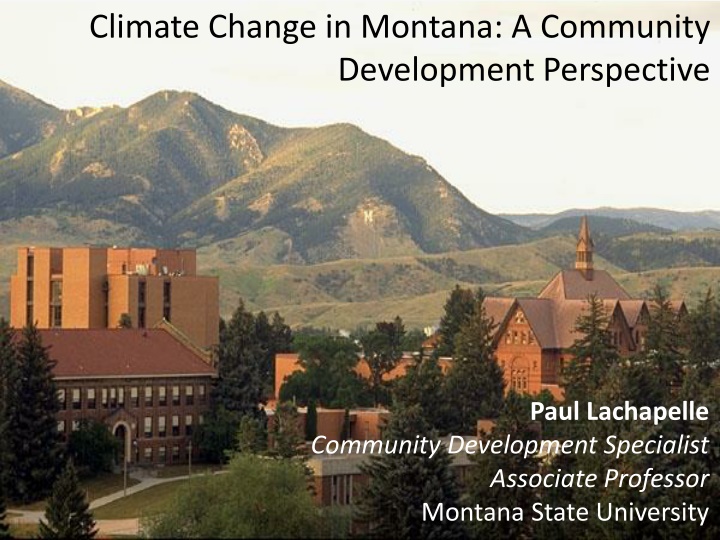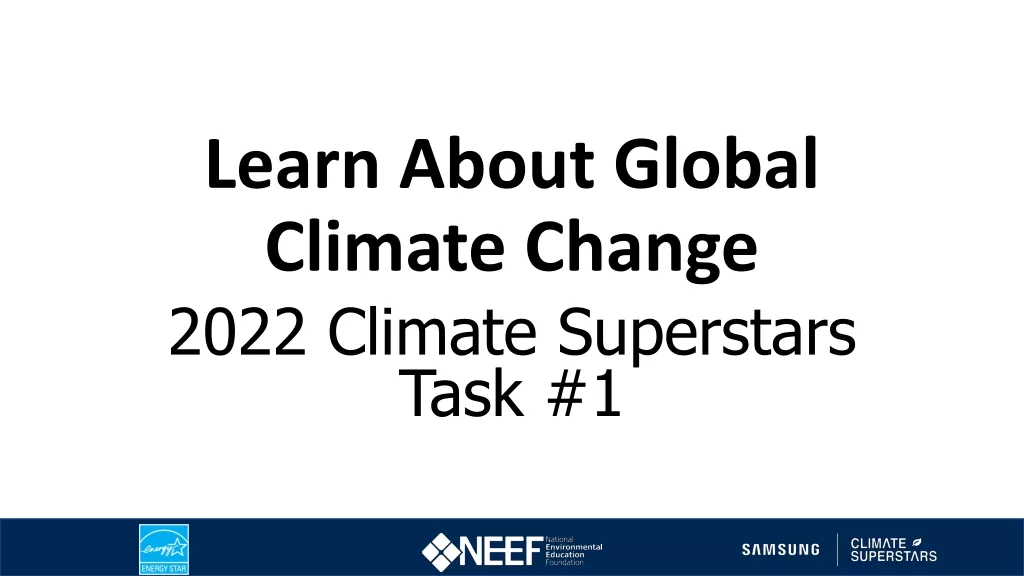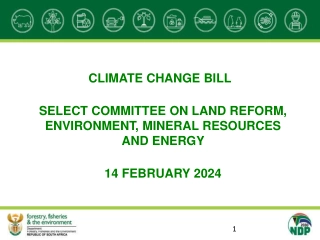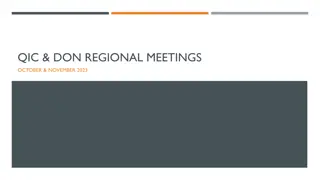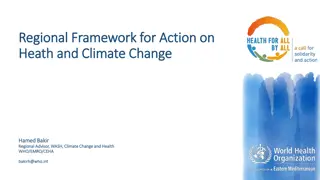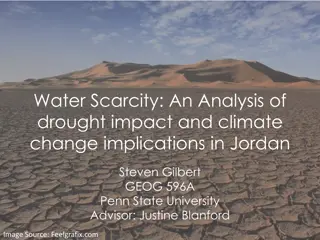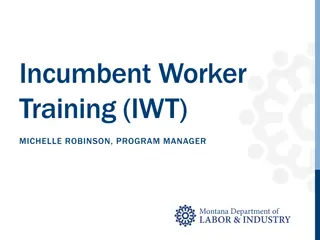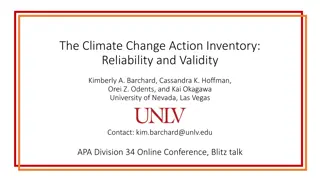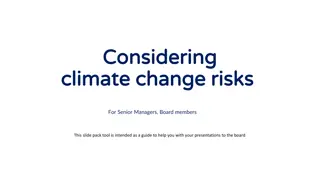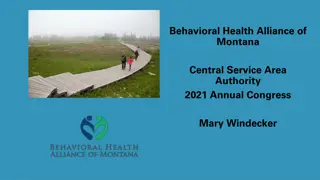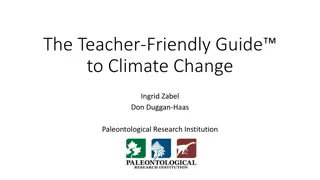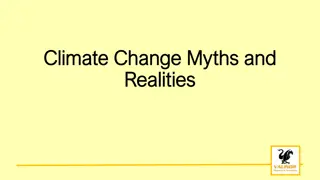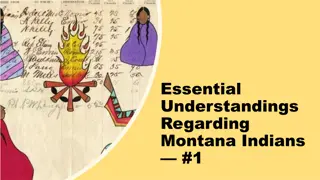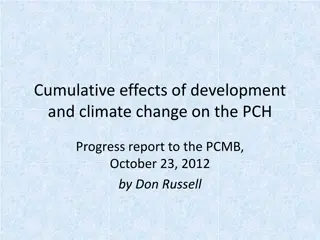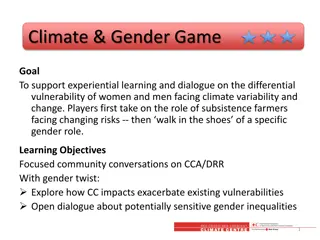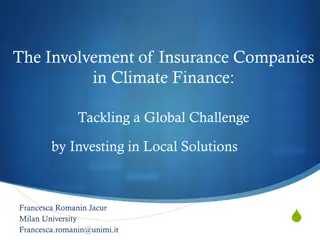Climate Change in Montana: A Community Development Perspective
Based on scientific evidence, global climate change caused by human activities poses a growing threat to society. This comprehensive perspective by Paul Lachapelle explores the impacts of climate change on Montana through a community development lens, addressing vulnerable populations and engaging citizens in discussions about prospective policy changes. The content emphasizes the urgent need for proactive measures to combat the unprecedented levels of atmospheric CO2 concentration and the ensuing global warming, which will lead to significant regional and local temperature and precipitation alterations as well as an increase in extreme weather events.
Download Presentation

Please find below an Image/Link to download the presentation.
The content on the website is provided AS IS for your information and personal use only. It may not be sold, licensed, or shared on other websites without obtaining consent from the author.If you encounter any issues during the download, it is possible that the publisher has removed the file from their server.
You are allowed to download the files provided on this website for personal or commercial use, subject to the condition that they are used lawfully. All files are the property of their respective owners.
The content on the website is provided AS IS for your information and personal use only. It may not be sold, licensed, or shared on other websites without obtaining consent from the author.
E N D
Presentation Transcript
Climate Change in Montana: A Community Development Perspective Paul Lachapelle Community Development Specialist Associate Professor Montana State University
1. What is extensions role in climate science outreach? 2. How can we best address vulnerable populations? 3. What is extension s role to engage citizens in discussions about prospective policy changes?
It is now more certain than ever, based on many lines of evidence, that humans are changing Earth s climate The present level of atmospheric CO2 concentration is almost certainly unprecedented in the past million years Adding more CO2 to the atmosphere will cause surface temperatures to continue to increase Global warming of just a few degrees will be associated with widespread changes in regional and local temperature and precipitation as well as with increases in some types of extreme weather events. These and other changes will have serious impacts on human societies and the natural world. US National Academy of Sciences and Royal Society. 2014. Climate Change: Evidence & Causes. Wash. DC: National Academy of Sciences.
Position Statements from ~200 Academies, Professional Associations and Organizations American Association for the Advancement of Science "The scientific evidence is clear: global climate change caused by human activities is occurring now, and it is a growing threat to society." (2006) American Medical Association Supports the findings of the Intergovernmental Panel on ClimateChange s fourth assessment report and concurs with the scientific consensus that the Earth is undergoing adverse global climate change and that anthropogenic contributions are significant." (2013) American Meteorological Society "It is clear from extensive scientific evidence that the dominant cause of the rapid change in climate of the past half century is human-induced increases in the amount of atmospheric greenhouse gases, including carbon dioxide (CO2), chlorofluorocarbons, methane, and nitrous oxide." (2012) The Geological Society of America "The Geological Society of America (GSA) concurs with assessments by the National Academies of Science (2005), the National Research Council (2006), and the Intergovernmental Panel on Climate Change (IPCC, 2007) that global climate has warmed and that human activities (mainly greenhouse gas emissions) account for most of the warming since the middle 1900s." (2006; revised 2010) U.S. National Academy of Sciences "The scientific understanding of climate change is now sufficiently clear to justify taking steps to reduce the amount of greenhouse gases in the atmosphere." (2005) source: opr.ca.gov/s_listoforganizations.php; climate.nasa.gov/scientific-consensus/
Source: https://www.skepticalscience.com/global-warming-scientific-consensus-intermediate.htm
Source: Yale Project on Climate Change Communication: www.environment.yale.edu/climate-communication/
6 Americans source: http://climatecommunication.yale.edu/visualizations-data/global-warmings-six-americas-november-2016/
https://mediamatters.org/research/2017/03/23/how-broadcast-networks-covered-climate-change-2016/215718https://mediamatters.org/research/2017/03/23/how-broadcast-networks-covered-climate-change-2016/215718
https://mediamatters.org/research/2017/03/23/how-broadcast-networks-covered-climate-change-2016/215718https://mediamatters.org/research/2017/03/23/how-broadcast-networks-covered-climate-change-2016/215718
http://www.newyorker.com/magazine/2017/02/27/why-facts-dont-change-our-mindshttp://www.newyorker.com/magazine/2017/02/27/why-facts-dont-change-our-minds
Impacts on Communities The projected rapid rate and large amount of climate change over this century will challenge the ability of society and natural systems to adapt. --US Global Change Research Program Climate change makes many existing diseases and conditions worse, but it may also help introduce new pests and pathogens into new regions or communities. --National Institutes of Health Climate change will affect certain groups more than others, particularly groups located in vulnerable areas and the poor, young, old, or sick. --US Environmental Protection Agency Current and future impacts of climate change on human society are and will continue to be overwhelmingly negative. --Oxfam Climate change threatens the basic elements of life for people around the world. The impacts of climate change are not evenly distributed the poorest countries and people will suffer earliest and most. -- Stern Review on the Economics of Climate Change Sources: www.niehs.nih.gov/research/programs/geh/climatechange/ www.epa.gov/climatechange/impacts-adaptation/society.html www.globalchange.gov/usimpacts www.oxfam.org.uk/what-we-do/issues-we-work-on/climate-change www.hm-treasury.gov.uk/d/closed_short_executive_summary.pdf
THANK YOU! Paul Lachapelle 406.994.3620 paul.lachapelle@montana.edu www.msucommunitydevelopment.org
1. What is extensions role in climate science outreach? 2. How can we best address vulnerable populations? 3. What is extension s role to engage citizens in discussions about prospective policy changes?
